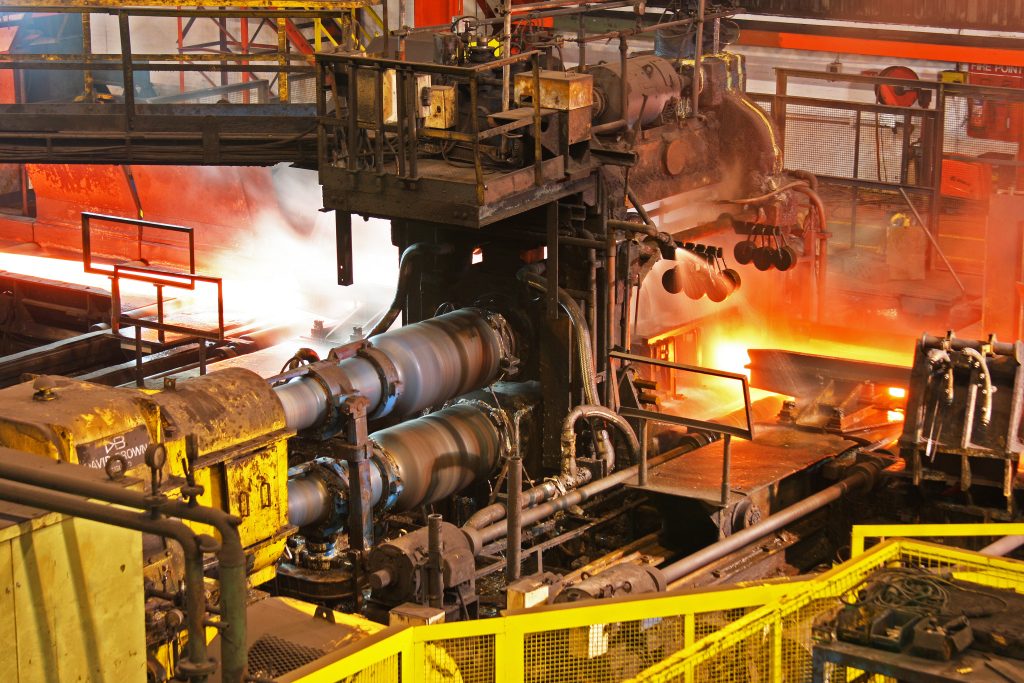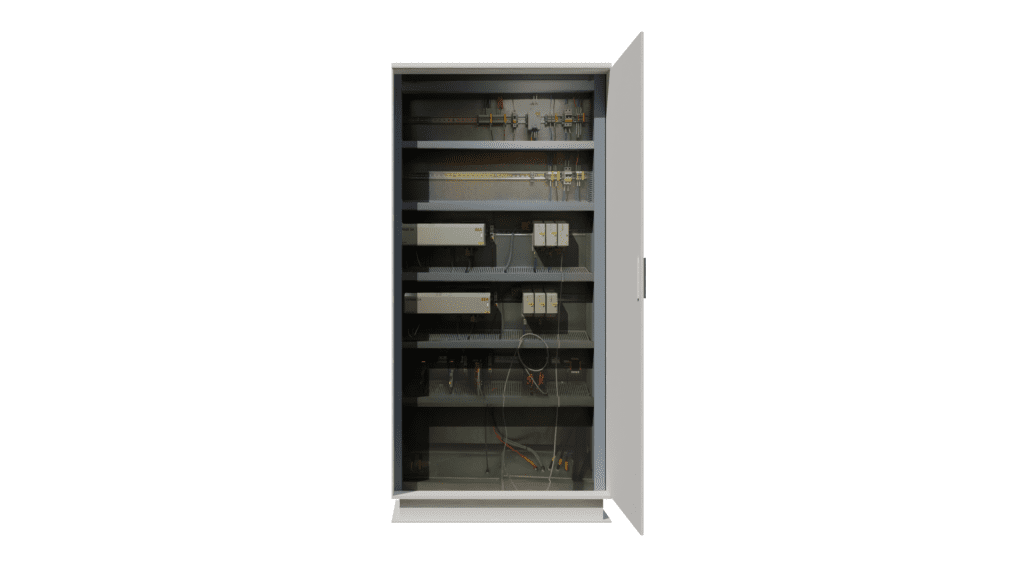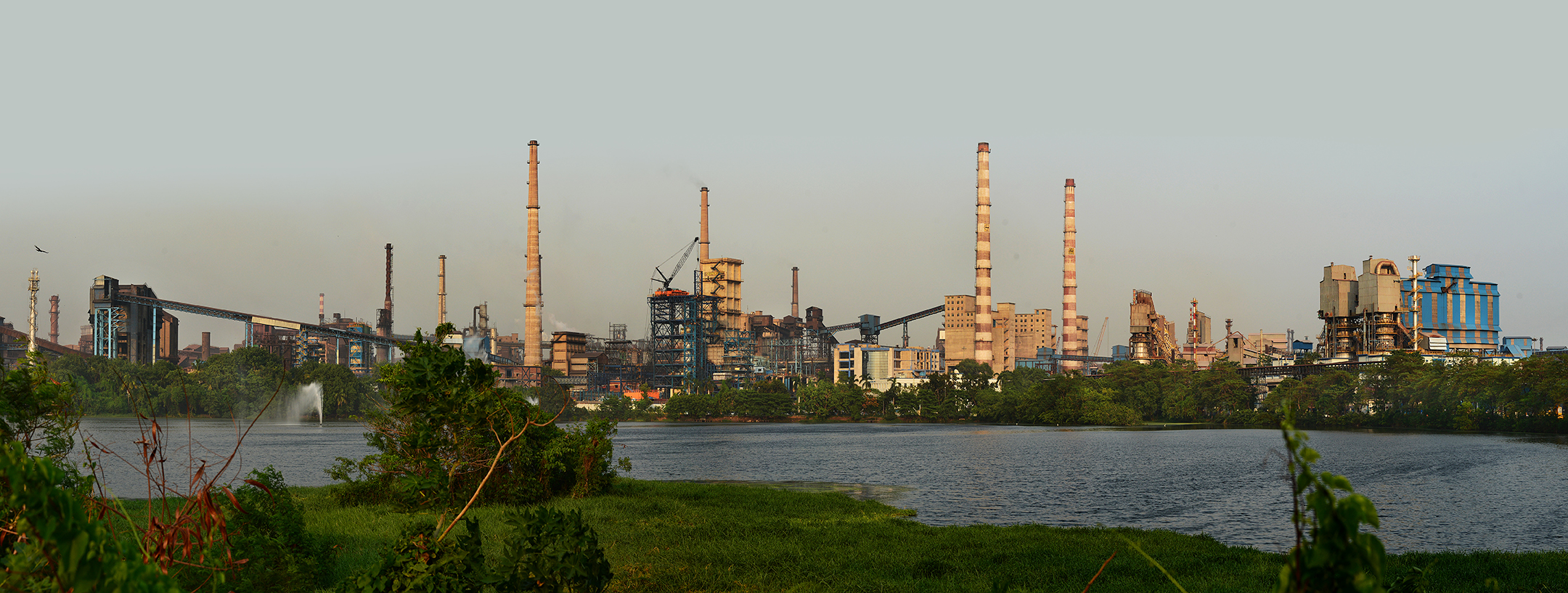By ABB & Tata Steel
For Tata Steel, a company synonymous with Indian steelmaking, the ongoing modernization of its operations is essential to remain at the forefront of an increasingly competitive global market. Despite the efficiency of traditional bar mills—built on decades of standardized processes—there are inherent limitations as to how much they can be optimized through conventional methods alone. To overcome these constraints, Tata Steel turned to ABB’s deep domain expertise and technological prowess to modernize its new bar mill and attain better productivity, yield and availability, among other benefits.
Tata Steel and ABB have shared a close and productive relationship for over five decades, built on a strong foundation of mutual trust and technological collaboration. This partnership is driven by a joint mission to reduce the carbon footprint of steel production, which recently reached a new milestone with the successful modernization of Tata Steel’s bar mill in Jamshedpur, India.
Steel demand in India is expected to rise [3] by more than 300% by 2050, rising from approximately 103 million tons in 2021 to 430 million tons by 2050. This is, in part, driven by major infrastructure projects, rapid urbanization, and industrial growth spurred on by government initiatives such as the National Infrastructure Program and Housing for All. These programs are creating a significant demand for Thermo-Mechanically Treated (TMT) bars, products which are essential for reinforcing concrete structures in buildings, bridges, highways, and other critical infrastructure. With these projects in play, India’s projected consumption of steel is set to surpass 206 million tons by 2030, solidifying the need for increased domestic production.
Faced with increasing demand in the market and the need for greater operational efficiency to produce more using less energy and fewer resources, ABB set about the project to update and enhance operations at the mill, leveling up Tata’s efficiency at the Jamshedpur site. Building on the deep integrated knowledge that a partnership of this kind necessitates, this project not only addressed the challenge of the Jamshedpur mill’s obsolete controllers and input/output (I/O) modules on the way to greater production levels and significant downtime reductions, but continues the principles of driving innovation, efficiency and sustainability across Tata’s global operations.
The need for modernization
Tata Steel’s Jamshedpur bar mill is a crucial component of its production network [4]. As India’s first steel plant, Jamshedpur holds historic importance, but it is also a major contributor to Tata Steel Jamshedpur’s output today, producing around 11 million tons of steel annually [5]. With the rising demand for high-strength TMT bars—especially for infrastructure and construction projects across the world—the mill needed to enhance its operational efficiency and system reliability to stay competitive and continue to serve a rapidly evolving market.

This growing demand highlighted several areas for improvement for Tata Steel. Firstly, the mill’s outdated control systems were becoming a bottleneck, limiting performance and hindering productivity. The reliance on hardware-based shear control complicated diagnostics, making it difficult to proactively identify areas for maintenance. Furthermore, aging legacy systems meant that expertise and support were becoming increasingly scarce, reducing the mill’s ability to respond to market changes and capitalize on opportunities. Modernizing these systems was critical not just to address these technical limitations but to ensure Tata Steel could meet market demands for high-quality TMT bars, increase its production capacity, and maintain energy-efficient operations.
To meet these challenges, Tata Steel sought to modernize its bar mill by implementing a superior system for rolling mill control than the existing, obsolete system already in place. The goal was to optimize processes, increase production capacity, and enhance energy efficiency.
Key areas for improvement
The modernization project, which began in February 2021 and concluded in December 2022, focused on upgrading the bar mill’s automation and control systems to boost efficiency and reliability. ABB replaced the obsolete Advant AC450 remote modular controllers (RMC) and S100 technology I/O with the more advanced AC 800PEC controllers and fast I/O XF801s.

Why are these upgrades important to Tata Steel’s production? In essence, the new controllers allow for greater precision in controlling the speed, tension, and timing of steel production processes. This level of accuracy is vital because bar mills operate at extremely high speeds, where even small errors can lead to defects, wasted material, or machine wear and tear. By implementing more responsive and faster control systems, Tata Steel can ensure that every stage of the production process is optimized. This results in smoother operations, fewer production delays, and an increase in both output quality and quantity.
In particular, the new system allows for faster detection and resolution of issues, significantly reducing downtime. The improved diagnostic capabilities help operators quickly identify faults and take corrective action, enhancing overall efficiency. This ensures that Tata Steel can meet increasing market demand while maintaining consistent, high-quality production standards, ultimately helping the company stay competitive in a rapidly growing sector.
A unified approach
One of the critical success factors of the project was the strong, longstanding collaboration between Tata Steel and ABB. This deep-rooted relationship allowed both teams to work closely together throughout the project, navigate challenges and deliver the desired results.
ABB’s involvement extended well beyond the completion of the modernization project, demonstrating its commitment to long-term support and continuous improvement. As a trusted partner, ABB continues to provide remote monitoring and diagnostic services to Tata Steel, ensuring that the bar mill operates at peak performance. Leveraging its expertise in automation and control systems, ABB offers comprehensive support in identifying and resolving operational challenges, such as cobbles—defects that can occur during the steel rolling process.
With the introduction of the new controllers and I/Os, ABB can remotely analyze system data to detect anomalies and inefficiencies in real time. This proactive approach enables ABB to pinpoint the root causes of issues quickly and recommend optimized solutions, reducing downtime and minimizing the risk of production interruptions.
Results
The modernization project delivered significant, quantifiable improvements across key performance indicators (KPIs). Tata Steel achieved a double-digit increase in productivity and equipment availability. This growth was driven by ABB’s precision length optimization, improvements in the rotary entry system (RES) and self-adaptive shear control systems, all of which worked together to streamline operations and boost output.
Programmable logic controllers (PLC) related delays saw equally substantial improvements, with a reduction of almost 70%. Additionally, the upgrade resolved concerns with the obsolete Advant AC450 PLC, ensuring seamless operations moving forward. By minimizing downtime, ABB’s solutions allowed Tata Steel to maximize operational efficiency and meet the growing demand in the Indian market more effectively.
Yield, another critical measure of operational success, also saw significant gains. Prior to modernization, the yield ranged from 97.48% to 97.53%, but post-upgrade, it increased to 97.56% to 97.57%. Though seemingly modest, this improvement translates into significant material savings by reducing defects and waste, directly supporting Tata Steel’s sustainability objectives. By enhancing yield and minimizing production losses, ABB’s solutions helped Tata Steel optimize resource utilization and further their commitment to environmentally responsible manufacturing.

Sustainability gains
A key outcome of the project was its contribution to Tata Steel’s environmental initiatives. The modernization enabled the mill to reduce waste and energy consumption by improving yield and minimizing defects, as previously highlighted. The system’s ability to prevent cobbles and rejects also reduced the energy required to recycle defective materials, indirectly contributing to energy savings.
Overall, the operational improvements resulted in a leaner, more efficient operation that aligns with Tata Steel’s sustainability vision. The benefits of the project are expected to last well into the future. Tata Steel anticipates that the upgraded control systems will continue to optimize plant operations for at least a decade, with the potential for further refinements over time. ABB remains committed to supporting Tata Steel, providing ongoing remote monitoring and support to ensure continued optimization of the bar mill.
While this project marks a major success, it is not the end of the collaboration between Tata Steel and ABB. As the two companies look to the future, their partnership will continue to drive innovation and efficiency within the steel industry, setting a standard for how technology can transform manufacturing operations in a sustainable and impactful way.
[1] https://www.zawya.com/en/world/indian-sub-continent/steel-production-in-india-soars-to-1443-million-tonnes-in-2023-24-lvv22rwz [2] https://www.business-standard.com/industry/news/india-becomes-net-importer-of-finished-steel-in-fy23-24-shows-govt-data-124040800471_1.html [3] https://www.theclimategroup.org/sites/default/files/2024-02/India%20Net%20Zero%20Steel%20Demand%20Outlook%20report%203.pdf [4] https://www.tatasteel.com/corporate/our-value-chain/the-making-of-steel/#:~:text=Tata%20Steel%20has%20undertaken%20extensive,the%20Long%20Product%20Rolling%20Mills. [5] https://www.tatasteel.com/corporate/our-value-chain/the-making-of-steel/#:~:text=Tata%20Steel%20has%20undertaken%20extensive,the%20Long%20Product%20Rolling%20Mills.
